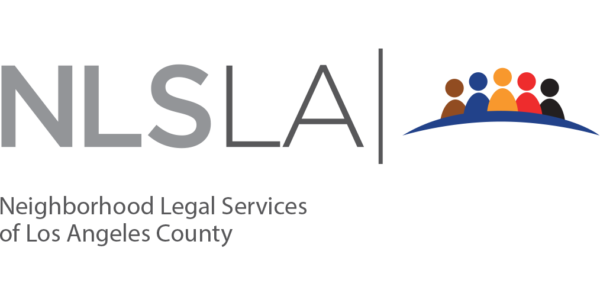CA Ignores Clear Patterns of Discrimination in School Discipline
Families and community group sue education department for allowing dozens of districts to suspend, expel and transfer students of color—and Black students in particular—at alarming rates, sanctioning an unequal system
Even as publicly available data has identified certain school districts as outliers when it comes to discriminatory discipline practices, the California Department of Education has looked the other way, continuing to fund these districts as they systematically rob students of color of their right to an education. Now students who have been subjected to these practices—and to their irreparable, spiraling harms—are suing the state, demanding that it fulfill its obligation to properly monitor and address discrimination in the districts it oversees and funds.
There are 1,037 school districts in California, and studies have shown that almost all of them discipline students of color, and Black students in particular, more frequently and more harshly than their white counterparts. But a closer look at annual data on suspensions and expulsions—which school districts must report to the education department—reveals that certain districts stand out for particularly discriminatory practices. Yet the department entrusted to protect California students and ensure they have equal access to a quality education does nothing to address these disparities.
“Each year the education department receives irrefutable evidence that certain districts are discriminating against vulnerable students, and each year officials there choose to ignore that evidence and abandon those students,” said Sahar Durali, an attorney with Neighborhood Legal Services of Los Angeles County (NLSLA), one of the groups filing the lawsuit. “Rather than ensure education is the great equalizer, the department is sanctioning an unequal system.”
The data does not reflect the full extent of the problem, as districts often classify expulsions as “transfers,” which they are currently not obligated to report to the state. These districts rely on transfers to move mostly Black students out of the general student population and into inadequate placements like continuation schools or independent study.
The lawsuit—filed in Los Angeles County Superior Court on Wednesday, October 6, by NLSLA, Equal Justice Society, and pro bono counsel Mayer Brown LLP—seeks to force the education department to increase monitoring of discipline data, expand reporting requirements to account for transfers, and investigate and address discriminatory discipline.
“Each of those suspensions, expulsions and transfers is a life derailed—how many lives need to be derailed before they take action?” said Darryl White of Black Parallel School Board. White’s organization, which supports the educational growth and development of Black students in the Sacramento City Unified School District and in districts around the state, is also a plaintiff in the case.
Among the worst districts when it comes to discriminatory discipline is the Antelope Valley Union High School District, which in 2018/2019 reported more suspensions than the L.A. Unified School District—21 times its size. Black students make up 16 percent of the Antelope Valley district but accounted for almost half of those expulsions and suspensions. Not one of the students expelled that year was white. A series of public records requests revealed the district was relying heavily on transfers, which were ten times as frequent as expulsions that same year.
“It is unconscionable that the education department has no system in place to address such egregious discriminatory discipline practices,” said Equal Justice Society attorney Alexandra Santa Ana. “Black and Latinx students deserve so much more from us.”
Plaintiffs in the case include a Black fourth-grader with a disability who was subjected to frequent off-the-books suspensions, and a fifth-grade Latinx student with a disability who was repeatedly suspended and subjected to frequent law enforcement contact from a Los Angeles County Sheriff’s Deputy stationed at his school.
“What these families are seeking is what’s promised to them in our state’s constitution,” said Doug Smith of Mayer Brown, LLP.
![]()
Neighborhood Legal Services of Los Angeles County (NLSLA) is a steadfast advocate for individuals, families, and communities throughout Los Angeles County. Each year NLSLA provides free assistance to more than 100,000 people through innovative projects that address the most critical needs of people living in poverty. Through a combination of individual representation, high impact litigation and public policy advocacy, NLSLA combats the immediate and long-lasting effects of poverty and expands access to health, opportunity, and justice in Los Angeles’ diverse neighborhoods.

The Equal Justice Society is transforming the nation’s consciousness on race through law, social science, and the arts. Led by President Eva Paterson, our legal strategy aims to broaden conceptions of present-day discrimination to include unconscious and structural bias by using social science, structural analysis, and real-life experience. Currently, EJS targets its advocacy efforts on school discipline, special education, and the school-to-prison pipeline, race-conscious remedies, and inequities in the criminal justice system. https://equaljusticesociety.org
![]()
Mayer Brown is uniquely positioned to advise the world’s leading companies and financial institutions on their most complex deals and disputes. As the first major law firm to develop and implement a pro bono strategic plan, Mayer Brown has long deployed its considerable resources to offer access to the justice system and confront systemic problems around the world where it can have a major impact. To that end, in 2020 the firm launched Project Equity to combat systemic racism and promote racial equity. Visit: https://www.mayerbrown.com.

The Black Parallel School Board is a community organization that works parallel to the Sacramento City Unified District Board of Education. Our major responsibility is to support the educational growth and achievement of Black students in the district. We work to monitor the progress of Black students in the district, highlight forms of racial inequities and academic disparities within schools that can stand in the way of the academic success of Black students. Visit https://www.blackparallelschoolboard.com



